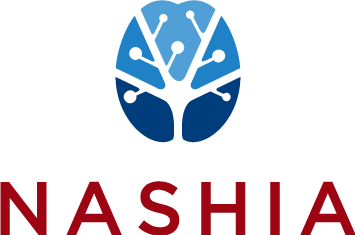A Report on Barriers to Community Integration of People with Traumatic Brain Injury in Ohio Nursing Facilities
Disability Rights Ohio and the Ohio Brain Injury Program collaborated on a project focused on community integration for people with traumatic brain injury (TBI) living in nursing facilities in Ohio. The purpose of the project was to identify major service gaps that are barriers to people with TBI living in the community and to use the information to inform changes in state support systems so that people with TBI are more integrated into their communities.
Strong Infrastructure Components for Brain Injury (BI): State Self-Assessment Tool
Building a strong state infrastructure takes time, effort, and planning from many individuals and organizations. There are several key components necessary to create a comprehensive state system of services, partners, funding, and policy. Infrastructure building is a process and requires routine assessment, regardless of the level achieved. This tool, Strong Infrastructure Components for Brain Injury (BI): State Self-Assessment Tool, produced by ACL's Traumatic Brain Injury (TBI) Technical Assistance and Resource Center (TARC) was created to assist BI partners and collaborators in determining which level best describes their state’s progress, and to give some guidance to what a more comprehensive system could include. It is designed to be a guide, and states should consider re-assessing routinely, or at various points to assist in state planning efforts, such as conducting a new needs assessment, developing, or updating a state plan, or applying for a grant opportunity.
NASEM - Improving Systems of Care for Traumatic Brain Injury
The National Academies Forum on Traumatic Brain Injury (TBI) hosted a hybrid public workshop in May 2023 to explore what is needed to better serve adult TBI patients who require follow-up care in support of their recovery at home. Speakers discussed when and how to follow up with less-severe TBI patients who have been discharged to their homes after a brief period of acute care, and the varied needs, issues, and considerations that relate to outpatient care and at-home symptom management during the approximately 6-month period following injury. This publication summarizes the presentation and discussion of the workshop.
Disability Information and Access Line (DIAL)
The Disability Information and Access Line (DIAL) connects callers to information about how to access the COVID-19 vaccine and related supports for people with disabilities. DIAL connects callers to vaccine sites, testing, and provides information related to barriers to vaccination by referring callers to local and national disability resources. Call: 888-677-1199 from 9:00 AM to 8:00 PM ET | DIAL@n4a.org
ACL: What Do Older Adults and Individuals with Disabilities Need to Know
Older adults and people with certain underlying medical conditions are at increased risk for COVID-19 illness. Residents of nursing homes or other long-term care facilities may also be at increased risk.
Maryland Resource Coordination Handbook
This handbook is intended for use by human service professionals including; mental health professionals, case managers, clinicians, therapists, special educators and transitioning specialists.
HUD Information for Disabled Persons
This page is designed to answer frequently asked questions on the housing rights of people with disabilities and the responsibilities of housing providers and building and design professionals under federal law.
Colorado Provides Affordable Housing for Homeless with Brain Injury
Brothers Redevelopment and the Brain Injury Alliance of Colorado got approval from the Denver City Council Monday to move forward with a plan to provide affordable housing for those experiencing homelessness who are also suffering from a brain injury.








